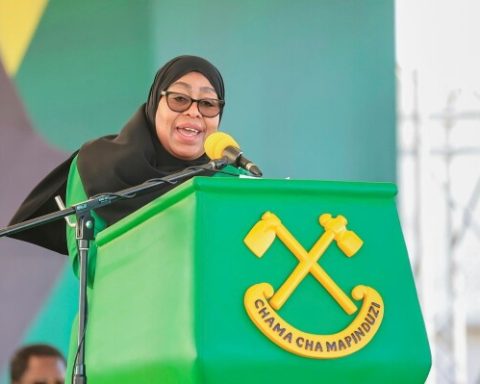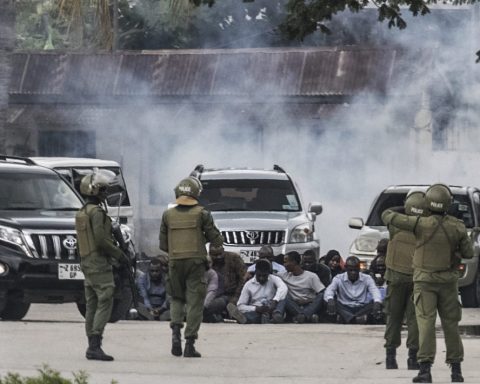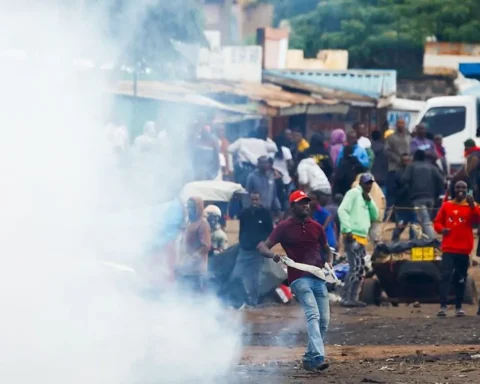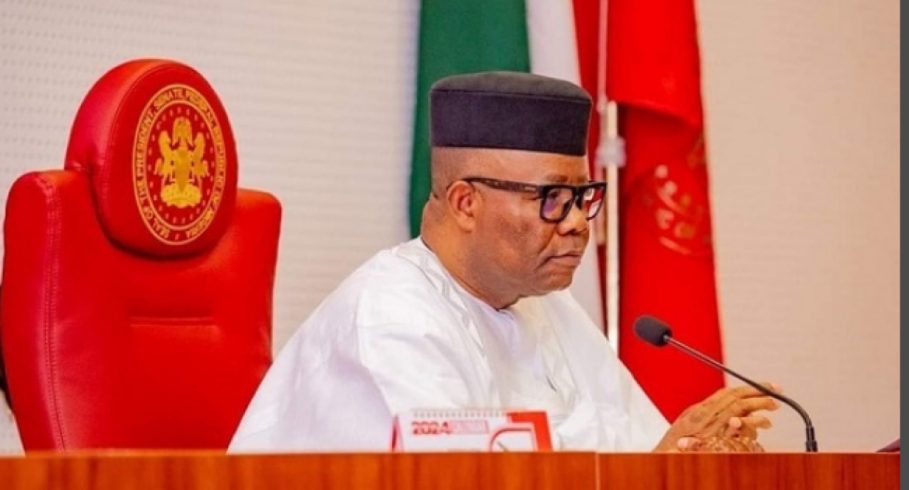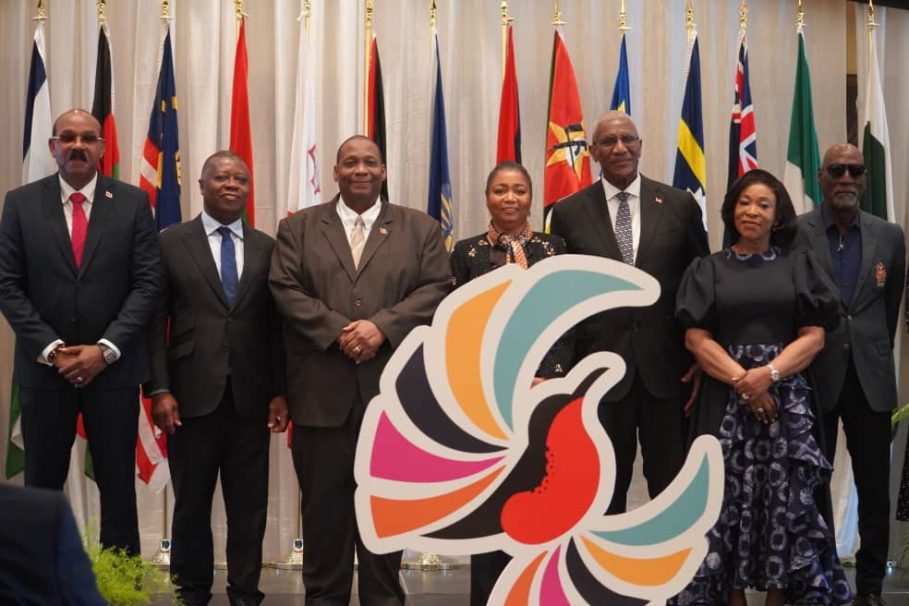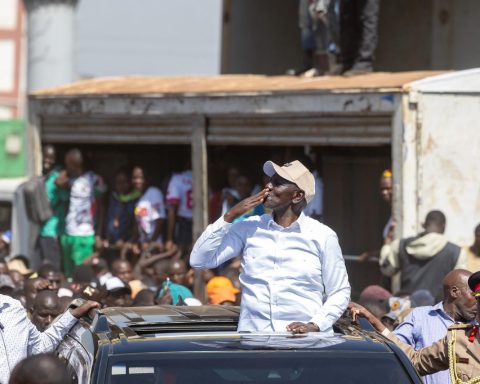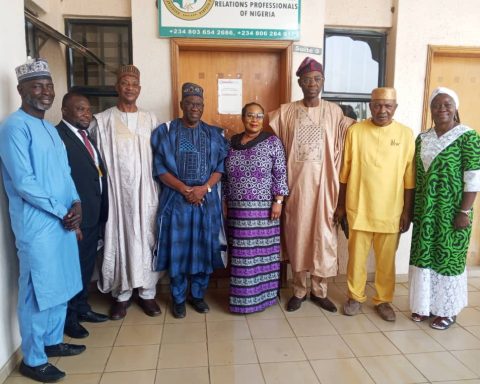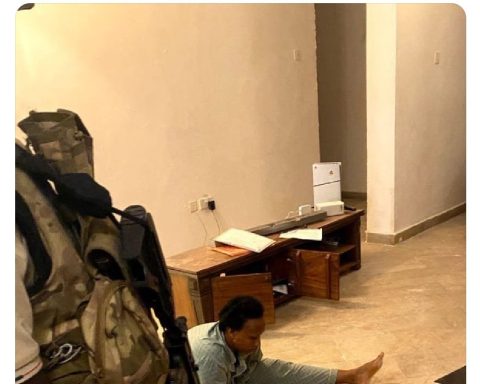Tanzania has begun partially restoring internet access after nearly a week-long blackout that coincided with violent protests following the country’s October 29 general elections.
However, authorities have warned citizens against sharing photos or videos of the unrest online, even as rights groups decry ongoing repression and alleged unlawful killings.
The government issued text messages to mobile phone users on Monday evening, cautioning that anyone who circulates content “that may cause public panic or insult human dignity” could face serious criminal charges, including treason.
Join our WhatsApp ChannelThe internet shutdown, which began on election day, lasted almost six days and crippled communication nationwide as reports of violence and alleged electoral irregularities spread.
According to rights groups, dozens of people were killed in clashes between security forces and opposition supporters across major towns. Residents said the blackout made it difficult to verify information or contact relatives in other regions.
“It has been hard to know what is really happening across the country because there was no internet,” Asha (not her real name), a resident of Arusha, told Dawan Africa. “Now it’s back, but very slow.”
READ ALSO: Tanzania’s Hassan Declared Winner in Disputed Election as Unrest and Blackout Persist
Tanzania: Authorities Instil Climate of Fear, Step Up Repression Ahead of General Elections
Amnesty International, in a statement on Monday, condemned what it called “unlawful killings and other human rights violations” committed amid the internet and electricity blackouts. The organization accused Tanzanian authorities of using excessive force to suppress post-election protests and called for the immediate release of those arrested for exercising their right to peaceful assembly.
“For close to a week now, many people in Tanzania have suffered nationwide internet and electricity shutdowns,” said Vongai Chikwanda, Amnesty’s Deputy Director for East and Southern Africa. “Authorities must immediately and unconditionally release all those arrested solely for exercising their right to peaceful assembly.”
Amnesty urged the government to promptly and transparently investigate all killings by security agents, bring those responsible to justice, and provide effective remedies for victims and their families. It also demanded the restoration of full access to the internet and media freedom to ensure accurate reporting of the human rights situation.
The opposition party Chama cha Demokrasia na Maendeleo (CHADEMA) claimed that more than 800 people were killed in the post-election crackdown, alleging that security forces used live ammunition and carried out arbitrary arrests to suppress demonstrations.
Local hospitals have reported treating scores of people with gunshot wounds, while families continue to search for missing relatives.
The government, however, has not released any official casualty figures and dismissed the opposition’s claims as exaggerated.
President Samia Suluhu Hassan, who has now been sworn in to begin her first elected term, has faced mounting pressure from international observers to ensure transparency and accountability following the election.
Amnesty International and other human rights organizations have described the internet blackout and violence as part of a broader effort by Tanzanian authorities to silence dissent and control the post-election narrative.
While the partial reopening of internet services marks a cautious step, restrictions remain on major social media platforms, leaving much of the country still digitally isolated amid ongoing tensions.
Amanze Chinonye is a Staff Correspondent at Prime Business Africa, a rising star in the literary world, weaving captivating stories that transport readers to the vibrant landscapes of Nigeria and the rest of Africa. With a unique voice that blends with the newspaper's tradition and style, Chinonye's writing is a masterful exploration of the human condition, delving into themes of identity, culture, and social justice. Through her words, Chinonye paints vivid portraits of everyday African life, from the bustling markets of Nigeria's Lagos to the quiet villages of South Africa's countryside . With a keen eye for detail and a deep understanding of the complexities of Nigerian society, Chinonye's writing is both a testament to the country's rich cultural heritage and a powerful call to action for a brighter future. As a writer, Chinonye is a true storyteller, using her dexterity to educate, inspire, and uplift readers around the world.



